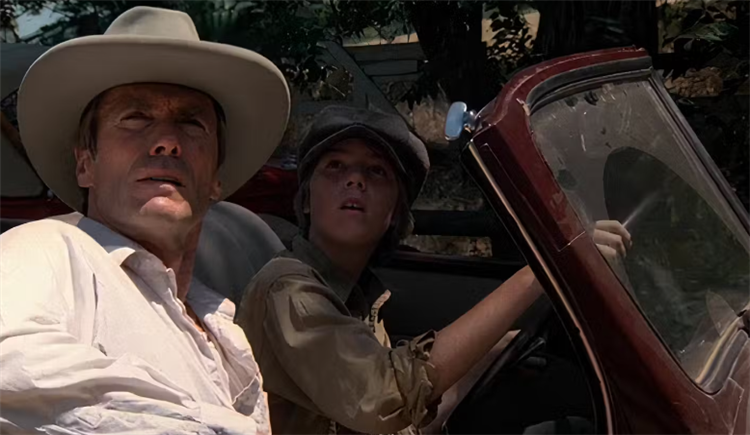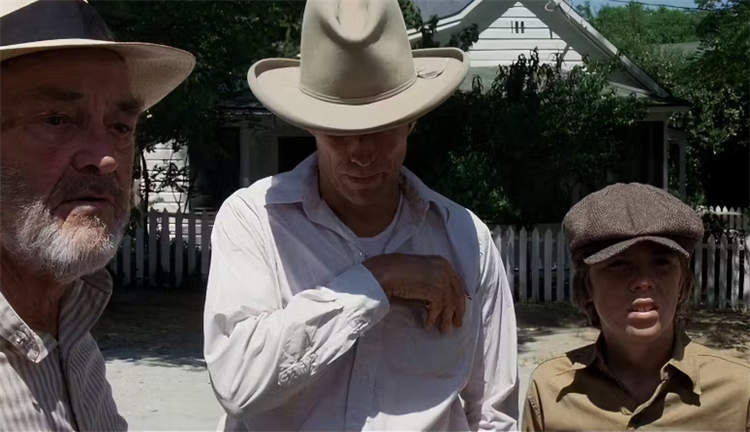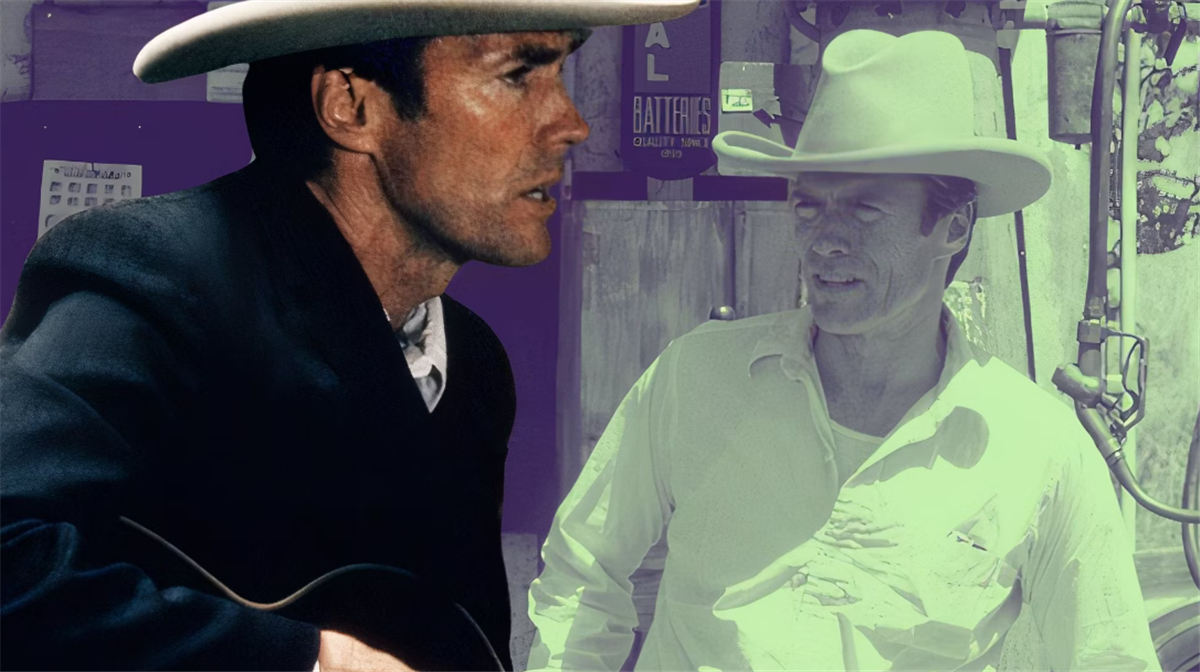Clint Eastwood has never moved further away from the path of box-office stardom than he did with the 1982 musical Western comedy-drama film Honkytonk Man, in which he subverts his trademark tough-guy star persona through his uncompromising and vulnerable performance as Red Stovall, an alcoholic Depression-era drifter and fledgling country-and-Western singer who embarks on one last road trip before he dies from tuberculosis.
Eastwood was drawn to Honkytonk Man because it gave the actor who directed and produced the film the chance to revisit the back roads of his own Depression-era childhood. Honkytonk Man also provided the music-loving actor with the opportunity to sing. Moreover, Honkytonk Man co-stars his firstborn child, son Kyle Eastwood, who plays Red’s nephew, Whit, who becomes Red’s chaperone, driver, and eventual songwriting partner.
Honkytonk Man, dismissed by critics and ignored by audiences at the time of its release, is a simple and special film. While it has experienced a gradual increase in audience and critical appreciation over the past 40 years, it remains an overlooked film in Eastwood’s career, in which his affecting performance as Red is one of his best.
Clint Eastwood Cast His Son in Honkytonk Man

Honkytonk Man opens with Clint Eastwood’s Red Stovall arriving at his sister’s Oklahoma farmhouse in his Lincoln convertible, in which a drunken Red crashes into a windmill outside the farmhouse amid a 1930s dust storm. After his sister, Emily, and her family carry an unconscious Red inside, his nephew, Whit, retrieves Red’s guitar from the backseat of Red’s car, along with a letter of invitation for Red to audition to become a singer on the Grand Ole Opry radio broadcast in Nashville, Tennessee.
For the tuberculosis-stricken Red, the Grand Ole Opry audition seemingly represents his last hope. However, given his weakened state, he can’t make the drive himself. With Whit’s family set to migrate to California, Emily grudgingly agrees to let Whit accompany Red to Nashville as Whit’s chaperone and driver. However, Red discovers early in the film that Whit possesses obvious musical ability.
As Whit is described in the Honkytonk Man script as being a 14-year-old boy, Eastwood understandably felt that his son, Kyle, who was 14 when the film was released and had expressed a desire to get into acting, was well-suited for the role. Eastwood, who had never worked especially closely with a child or teenage actor, didn’t want the role of Whit to be played by a professional young actor.
Kyle Eastwood is a revelation in Honkytonk Man, in which Kyle’s natural, unforced appearance is crucial to defining the relationship between Red and his nephew as that of kindred spirits, partners, instead of a kid and his weary uncle. This is highlighted in a scene in which Whit helps Red compose the film’s titular song, which is the song that he will be most remembered for if he’s remembered at all.
Eastwood Lived Through the Great Depression
Honkytonk Man gave Clint Eastwood, who was born in San Francisco in 1930, the opportunity to relive the Great Depression, which Eastwood experienced firsthand throughout his early childhood, when Eastwood’s family, his parents, and sister, struggled to adjust from a pre-Depression level of modest affluence to being at the brink of abject poverty.
During the Great Depression, Eastwood’s father, Clinton Eastwood Sr., who had been fairly prosperous before the onset of the Great Depression and emerged as a successful businessman in the 1940s, relocated the family throughout California to Oakland and Redding and Sacramento, where Clinton, who died in 1970 at the age of 64, found his most steady work as a gas station attendant. The efficiency and frugality that defined Eastwood’s career were clearly formed during those hard years. Of his memories of the Great Depression, Eastwood told Esquire:
“When I harken back to my dad, I remember we left Redding and drove down here [Los Angeles] so he could get a job as a gas jockey at a Standard Station on the corner of PCH and Sunset Boulevard. But you travel 500 miles, bring your family, rip up everything, and [you] do that because that’s the only job that existed. So I think: What would happen if he’d have said, ‘Oh, I can’t do that?’ Well, we’d have been begging for sandwiches at somebody’s backdoor.”
Eastwood Has Had a Long Musical Career

In Honkytonk Man, Clint Eastwood’s Red Stovall is as much a victim of fate and timing as his own various bad life choices. The tragedy of Red’s unfulfilled potential is highlighted by his tuberculosis, which results in coughing fits that hit Red at the worst possible times, like when he’s attempting to sing a song. Indeed, Red’s big Grand Ole Opry audition unfolds strongly but is eventually undermined by Red’s coughing, which leads to his dismissal.
However, Red’s dreams have been realized, to varying degrees, by Eastwood, who has composed the scores for several of his films, beginning with the 2003 crime drama film Mystic River, and his son Kyle, an accomplished jazz musician who has contributed music to several of his father’s films, most notably Gran Torino, Invictus, and Letters from Iwo Jima, for which Kyle composed the scores.
Moreover, just as Red is haunted by the roads that he didn’t take in his life, it’s interesting to imagine how Eastwood’s life would have unfolded had Eastwood failed to find success as an actor. Regarding the parallels between Eastwood and Red, Verna Bloom, who plays his sister in Honkytonk Man, said that if Eastwood were a failure, he’d be Red. Honkytonk Man is available to rent on iTunes and Prime Video.
